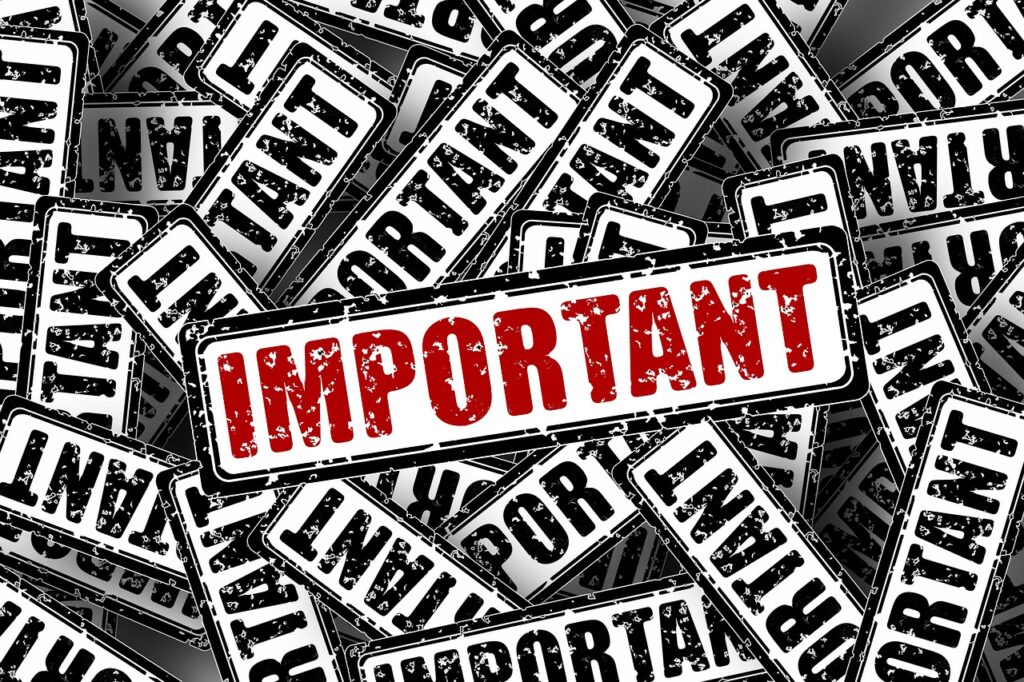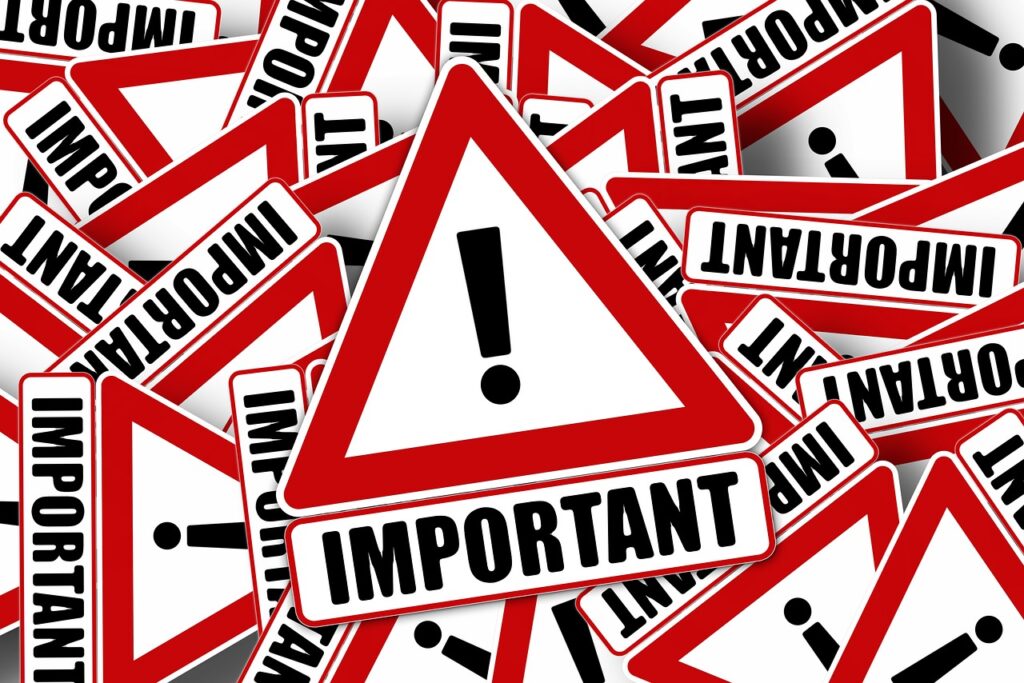So, you’re considering going on an exchange program, but you’re not quite sure what to expect? Look no further! This article will give you all the essential information about exchange periods that you need to know. Whether you’re a student eager to explore a new culture or a professional looking to broaden your horizons, understanding the ins and outs of exchange programs will help you make the most of this incredible opportunity. From the benefits of cultural immersion to the challenges that may arise, read on to discover everything you need to know about exchange periods.
Understanding Exchange Periods
Definition of Exchange Periods
Exchange periods refer to a temporary period of time where individuals immerse themselves in a different country or culture. It is an opportunity to experience a new environment, learn from different perspectives, and develop personal growth and independence.
Importance of Exchange Periods
Engaging in exchange periods can have a profound impact on an individual’s personal and professional life. It allows you to broaden your horizons, gain a deeper understanding of other cultures, and develop a global mindset. Exchange periods also provide valuable opportunities for language development, cultural appreciation, and personal growth.
Types of Exchange Periods
Short-term Exchanges
Short-term exchanges typically last from a few weeks to a few months. These programs often involve school or university partnerships, where students have the chance to visit and study in a foreign country. Short-term exchanges are an excellent way to experience a new culture, build friendships, and develop intercultural communication skills.
Long-term Exchanges
Long-term exchanges are lengthier, usually lasting six months to a year or even longer. They typically involve a more in-depth immersion in the host country’s culture, education system, and lifestyle. Long-term exchanges provide individuals with a unique opportunity to fully integrate into a foreign society, become fluent in the local language, and forge long-lasting connections.
Virtual Exchanges
Virtual exchanges, also known as online exchanges, have gained popularity in recent years. These exchanges allow individuals to connect and interact with people from different countries without physically traveling. Through video calls, online platforms, and collaborative projects, participants can still experience cross-cultural learning and develop global perspectives.

Benefits of Participating in Exchange Periods
Cultural Understanding and Appreciation
One of the most significant benefits of exchange periods is the opportunity to develop cultural understanding and appreciation. Being immersed in a different culture allows you to experience firsthand the customs, traditions, and values of a foreign society. This exposure fosters empathy, respect, and a deeper understanding of diversity, which are essential in today’s interconnected world.
Language Development
Participating in an exchange program provides an ideal environment for language development. Whether you are immersing yourself in a foreign country or engaging in virtual exchanges, you will have the chance to practice your language skills on a daily basis. This constant exposure and communication with native speakers enhance language fluency and boost confidence in using the language in real-life situations.
Personal Growth and Independence
Engaging in an exchange period is a transformative experience that promotes personal growth and independence. It pushes you out of your comfort zone, challenges your assumptions, and encourages self-reflection. Living in a foreign country forces you to adapt to new situations, make decisions independently, and develop problem-solving skills. The experience can build resilience, self-confidence, and a global mindset that will benefit you throughout your life.
Preparing for an Exchange Period
Researching Host Country
Before embarking on an exchange period, it is essential to conduct thorough research on the host country. Familiarize yourself with its history, culture, customs, and traditions. Understanding the country’s social norms, educational system, and lifestyle will help you adapt more easily during your exchange period.
Learning the Local Language
If your exchange program involves a country with a different language, it is beneficial to start learning the local language before your departure. This will enable you to communicate effectively, navigate daily situations, and make deeper connections with the locals. Enrolling in language classes, using language-learning apps, and practicing with language exchange partners are all helpful ways to improve your language skills.
Adapting to Cultural Differences
Every country has its own unique cultural norms and practices, and adapting to these differences is crucial for a successful exchange period. It is essential to be open-minded, respectful, and willing to learn from the host culture. Familiarize yourself with cultural etiquette, gestures, and taboos to avoid unintentionally offending others. Embrace the differences and embrace the opportunity to grow and learn from them.
Packing Essentials
When packing for an exchange period, consider the duration of your stay, climate, and cultural expectations in the host country. Pack essential documents, such as your passport, visa, and travel insurance information. Research the weather and pack appropriate clothing. It is also a good idea to bring any necessary medications and familiar items that provide comfort during your time away. Don’t forget to leave some space for souvenirs and gifts you may want to bring back home.

Finding Exchange Programs
School and University Programs
Many schools and universities have established exchange programs with partner institutions around the world. These programs often offer academic credits and support services to facilitate a smooth transition. Consult with your school’s international office or study abroad department to explore available exchange opportunities.
International Organizations
International organizations, such as the Fulbright Program, AIESEC, or Rotary International, offer various exchange programs for individuals of different ages and backgrounds. These organizations provide comprehensive support, cultural immersion, and networking opportunities. Research and engage with reputable international organizations to find exchange programs that align with your interests and goals.
Online Platforms
With the increasing popularity of virtual exchanges, online platforms have emerged as convenient avenues to connect with individuals from different countries. Platforms such as eTwinning, PenPal World, and Global Nomads Group facilitate cross-cultural communication, collaborative projects, and virtual cultural exchanges. These platforms offer flexibility, accessibility, and the chance to develop global connections from the comfort of your own home.
Application and Selection Process
Application Requirements
When applying for an exchange program, there are usually specific requirements that need to be fulfilled. These requirements may include academic transcripts, letters of recommendation, personal essays, and language proficiency tests. It is essential to carefully review the application guidelines and ensure that all required documents are submitted within the given deadlines.
Interview and Screening
Many exchange programs require applicants to go through an interview and screening process. The purpose of these interviews is to assess the applicant’s suitability, motivation, and commitment to the program. Be prepared to answer questions about your goals, experiences, and cultural adaptability. Approach the interview with confidence, authenticity, and a genuine passion for cross-cultural learning.
Acceptance and Preparation
Once accepted into an exchange program, it is crucial to carefully follow the provided instructions and guidelines to prepare for your departure. This may include obtaining necessary travel documents, booking flights, arranging accommodations, and attending pre-departure orientations. Take advantage of any preparation materials or resources provided by the program to ensure a smooth and successful exchange experience.

Financial Considerations
Program Costs
Exchange programs often come with associated costs, including program fees, travel expenses, and daily living costs. Research and compare different programs to find one that aligns with your financial capabilities. Ensure that you fully understand the program costs and any additional fees before committing to an exchange program.
Scholarships and Financial Aid
Financial constraints should not deter you from participating in an exchange program. Scholarships and financial aid options are available to support individuals with limited financial resources. Research and apply for scholarships specifically designed for exchange programs, as well as general scholarships for study abroad opportunities. Seek guidance from your school’s financial aid office or external scholarship providers.
Personal Expenses
In addition to program costs, it is important to budget for personal expenses such as meals, transportation, and leisure activities during your exchange period. Consider the cost of living in the host country, currency exchange rates, and any additional expenses that may arise. Creating a budget and managing your finances responsibly will ensure a more enjoyable and stress-free experience abroad.
Health and Safety
Travel Insurance
Travel insurance is a crucial aspect of any exchange program. It provides coverage for medical emergencies, trip cancellations, lost baggage, and other unforeseen circumstances. Ensure that you have comprehensive travel insurance that meets the requirements of your exchange program. Familiarize yourself with the policy coverage, claim procedures, and emergency contact information provided by the insurance provider.
Medical Check-ups
Before departing for your exchange period, it is essential to undergo a thorough medical check-up. This ensures that you are in good health and prepared for any potential health risks in the host country. Consult with your healthcare provider to discuss necessary vaccinations, medications, and preventive measures. Carry a copy of your medical records and prescriptions while traveling.
Emergency Contacts
Compile a list of emergency contacts that can be easily accessed in case of any unforeseen situations. Include the contact details of your program coordinator, local embassy or consulate, emergency services in the host country, and your designated emergency contact back home. Distribute copies of this list to your loved ones and keep a digital copy readily available.
Safety Measures
Exercising caution and being aware of your surroundings is essential for personal safety during an exchange period. Familiarize yourself with safety guidelines provided by your program and the host country. Be mindful of local laws and customs, avoid risky situations, and follow any advice or instructions from local authorities. Maintain regular communication with your program coordinator or host family to ensure your safety and well-being.

Experiencing the Exchange Period
Building Relationships
During your exchange period, take the opportunity to build meaningful relationships with people from different backgrounds. Engage in cultural activities, participate in local events, and join community organizations or clubs. By actively seeking opportunities for interaction, you can develop friendships, gain insights into the host culture, and create lifelong connections.
Adapting to a New Environment
Adapting to a new environment can be both exciting and challenging. Embrace the unfamiliarities, try new experiences, and be open to learning and growth. Take the time to understand the local customs, traditions, and social norms. By immersing yourself in the local culture and attempting to speak the language, you will integrate more easily into your new surroundings.
Overcoming Challenges
An exchange period is not without its challenges. It is important to recognize and accept that there will be moments of discomfort, homesickness, and cultural misunderstandings. Approach challenges as learning opportunities and seek support from local contacts, program coordinators, or fellow participants. By facing and overcoming these challenges, you will develop resilience, adaptability, and a greater appreciation for diversity.
Returning from an Exchange Period
Reverse Culture Shock
Returning home after an exchange period can sometimes be accompanied by reverse culture shock. After experiencing a new culture and developing new perspectives, it can be disorienting to readjust to your own culture. Be patient with yourself, allow yourself time to reflect on your experiences, and seek support from others who have gone through similar transitions. Embrace the opportunity to share your learnings and experiences with your community.
Applying Gained Knowledge and Experience
The knowledge and experience gained during an exchange period can greatly enhance your personal and professional life. Apply the skills you developed, such as intercultural communication, adaptability, and problem-solving, in various situations. Incorporate the cultural understanding and global perspectives you gained into your studies, career, and everyday interactions. Use your experience as a foundation for continued growth and learning.
Sustaining Connections
Maintaining the connections you developed during your exchange period is vital in sustaining the benefits of your experience. Stay in touch with friends, host families, or colleagues from the host country. Utilize social media, email, or video calls to maintain communication and continue fostering relationships. Consider visiting the host country again in the future to deepen your connections and further explore the culture that became a part of your life.
In conclusion, exchange periods offer incredible opportunities for personal growth, cultural understanding, and language development. By thoroughly preparing for your exchange, embracing the challenges, and actively engaging in the experience, you will return home with invaluable memories, skills, and a broader perspective of the world. Embarking on an exchange period is a life-changing adventure that will shape you in ways you never imagined. So, seize the opportunity, step out of your comfort zone, and embark on a journey of a lifetime!




